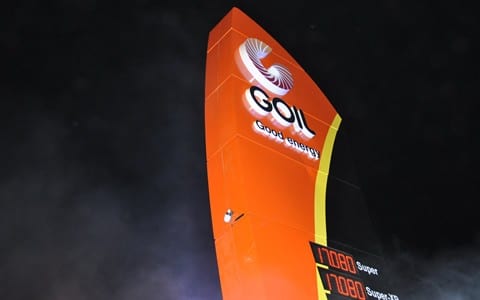The amount of gasoline consumption has increased significantly the world over with the United States’ Energy Information Administration (EIA) projecting that global liquid fuel consumption could reach an average of 100.3 million barrels per day (b/d) in the first quarter of 2020.
Although this would translate into increased revenue mobilisation for Oil Marketing Companies (OMCs), an increment in fuel consumption corresponds with a rise in carbon emissions, causing more pollution to the environment.
Global efforts
With the transport sector identified as the fastest growing contributor to climate emissions, efforts to tackle climate change have focused more on how to drastically reduce CO2 emissions; which is currently estimated at 36 billion tonnes a year.
Some countries, including the United States of America (USA) are responding to the disturbing environmental crisis brought on by humans by setting stricter vehicle emissions standards, which will compel automakers to make their cars cleaner and thereby, ultimately reduce greenhouse gas emissions by hundreds of millions of metric tons and cutting oil consumption by over one billion barrels by 2025.
In support of global efforts, five West African countries including Ghana, Nigeria, Cote D’Ivoire and Benin banned imports of fuels with high sulphur levels from Europe and agreed to upgrade their refineries to ensure higher standards by 2020. The move was expected to contribute to a 90 per cent reduction in harmful emissions that contribute to both air pollution and climate emissions.
It has also been established that improving vehicle fuel economy would mean lower CO2 emissions, estimated at 0.5 Gross tons (Gt)/year by 2025 and 1.5Gt/year by 2050, with total savings of 33Gt by 2050. Achieving this target, according to the Global Fuel Economy Initiative (GFEI), would result in annual fuel savings worth $400 billion in 2050, with total net savings of $8 trillion.
The issue of climate change is a global phenomenon and Ghana cannot excuse itself from the struggle to safeguard the environment. The high rate of greenhouse gas emissions largely due to the absence of established guidelines to ensure an improved fuel economy, should be a matter of concern for all, given the environmental and health implications of such hazardous emissions.
GOIL intervenes
It is against these concerns that Ghana’s indigenous oil marketing company, GOIL, has offered higher grade petrol, Super XP RON 95 to the Ghanaian consumer in support of the national drive to reduce carbon emissions, while offering consumers better fuel economy. GOIL will continue to put the interest of the Ghanaian consumer first in its decisions, remarked Group CEO and Managing Director, Kwame Osei –Prempeh.
GOIL RON 95 Super XP is a differentiated PMS (Premium Motor Spirit) unleaded gasoline fuel with enhanced properties and attributes that allows gasoline engines of all sizes to improve their performance. It is designed to efficiently and contains special additives that reduce fuel consumption and emissions. The important benefit to the Ghanaian consumer here is that, it is sold at the same price as RON 91, which is the commonly used fuel on the market, noted Mr Osei Prempeh.
When the company announced the introduction of RON95 onto the Ghanaian market to replace the regular RON 91, it was expected that consumers would be made to pay more as it had been the case with other OMCs who sold the higher grade petrol at premium prices. Remarkably, the CIMG Hall of FAME Petroleum Company did not only sell the RON95, which is currently the highest grade on the Ghanaian market for a regular price but went further to reduce its fuel prices to the benefit of consumers.
Multiple benefits
Regardless of its higher grade, the new Super XP RON 95 and Diesel XP also contain XP3 additives, which further enhances efficiency, cleans the engine, gives better lubricity and fuel economy, giving consumers value for money.
“GOIL is an innovative company in the Petroleum downstream sector. We were the first to introduce fuel additives, took the leadership position during the prize deregulation period for others to follow and was the first to introduce a Fuel Laboratory van. It is in keeping with this routine that we now offer consumers across the country, a higher grade fuel for the same price as regular fuel”, added Alex Josiah Adzew, Chief Operating Officer.
The higher grade petrol, according to industry players, contains detergents and boosters, which keep engine components such as valves, pistons and combustion components free of surface varnishes and carbon build-up to ultimately assist in promoting a longer service life.
Given the increasing importation of high performing vehicles into the country, the existence of SUPER XPRON 95 petrol, which supports high engine performance and reduces breakdowns, could be described as a timely intervention for users of such vehicles.
It is noteworthy that the fight to safeguard the environment from destruction is a collective responsibility and that motorists have an important role to play in the struggle. Courtesy GOIL, petroleum consumers in Ghana have been offered the opportunity to enjoy an improved fuel economy. The best way consumers can demonstrate their appreciation of the environment is to subscribe to GOIL’s SUPERXP RON 95 and DIESEL XP.










